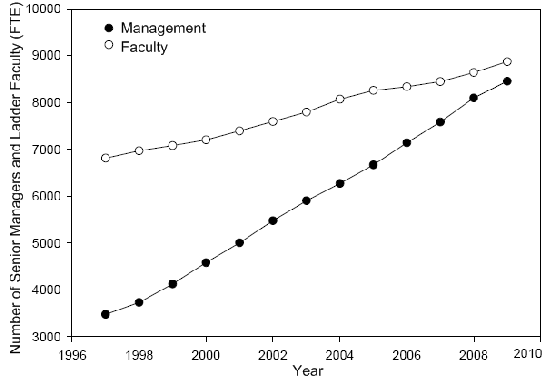The United States of Delusion
The irony is that clinging to delusion rather than face the necessity of deep cuts in borrow-and-squander budgets will lead to the involuntary reset of the entire system, depriving every vested interest of their share of the swag.
We are living in the United States of Delusion. The delusion has four key sources:
Is masking risk, cost and consequence a strategy that leads to success? No; it is a pathway to repeated catastrophic failure. What is the Central Planning strategy being pursued by our Central State and the Federal Reserve? Masking risk, cost and consequence.
Sickcare is fundamentally a system of interlinked politically powerful cartels.Insiders who refuse to speak on the record for fear of antagonizing the powers that be, exorbitant price increases, confidential agreements and a tug-of-war between warring tribes. Is this the Mafia we're talking about?
From the point of view of investigative journalism, it could al
so describe America's health care industry. Stated truthfully, the industry is a highly profitable and politically powerful group of companies which operate in cartel-like fashion: that is, they use their clout to limit competition and establish highly profitable pricing.
Western Pennsylvania has about 140 MRI machines, while the 32 million residents of Canada share 151 MRI machines. And the U.S. machines are getting a lot of use: the number of CT and MRI scans (scans other than old-fashioned X rays) tripled from 85 to 234 per thousand insured people since 1999.
While proponents are quick to note that scans are cheaper than the alternative diagnostic procedures, one firm's research found that a doctor who owns his own machine is four times as likely to order a scan as a doctor who doesn't.
As if that wasn't enough to highlight the self-serving nature of "fee for service" cartels, MRI scanner manufacturer General Electric waged a two-year lobbying campaign to roll back cuts in Medicare reimbursements for scans. While the effort proved unsuccessful due to the intense political pressure to reduce soaring Medicare costs, critics observed that providers simply made up the reduced reimbursements by increasing the number of tests administered.
The only solution that actually addresses the systemic problem is to get rid of the entire fee-for-service structure and break up the cartels.Healthcare must be reconnected to diet, nutrition, fitness, lifestyle and community, and to education and emotional well-being.
If you really want a solution, then start by pinning down exactly who's getting all the money. Then find out if they're accountable for how it's spent. Nobody wants to admit the reality: our nation is dominated by cartels and fiefdoms serving entrenched constituencies whose budgets are simply not sustainable.Please consider this chart of the University of California system's employment of professors and administration. If we extrapolate the lines, then soon there will be more highly-compensated seat-warmers in administration than there will be professors teaching in the classrooms.
It seems that some members of the Education Cartel and Fiefdom came to do good but stayed to do well--as in triple the national median earnings of full-time workers:
(Source: www.championnews.net/ftf_teacher.php?tid=78195&year=2010)
Salary: $172,163
Position: High School Teacher
Full/Part Time: Fulltime
Percent Time Employed: 100%
Assignment: Physics (Grades 9-12 Only)
Years Teaching: 30.5
Degree: Master's
Salary: $163,526
Position: High School Teacher
Full/Part Time: Fulltime
Percent Time Employed: 100%
Assignment: Driver Education
Years Teaching: 32
Degree: Master's
And how about those pension and retirement costs? We have an answer for New York City, and it is sobering. NYC budget - pension costs skyrocketing:
Over the past decade, New York City hasn’t really grown its population but has increased expenses from $28.8 billion to $49.7 billion. The vast majority of that $20.9 billion increase has been in the form of more dollars to fewer employees. Pension costs are killing us most: this has grown from $1.3 billion in 2002 to $8.3 billion in 2012.
That's a 638% increase in pension costs in one decade, while the city budget leaped 72% despite a stable population. The share of the budget devoted to pensions jumped from 4.5% in 2002 to 16.7% in 2012.
My new book Why Things Are Falling Apart and What We Can Do About It is now available in print and Kindle editions--10% to 20% discounts.
 1. Debt and financialization
1. Debt and financialization2. Crony capitalism and the elimination of accountability
3. Diminishing returns
4. Centralization
5. Technological, financial and demographic changes in our economyComplex systems weakened by diminishing returns collapse under their own weight and are replaced by systems that are simpler, faster and affordable. If we cling to the old ways, our system will disintegrate. If we want sustainable prosperity rather than collapse, we must embrace a new model that is Decentralized, Adaptive, Transparent and Accountable (DATA).
We are not powerless. Not accepting responsibility and being powerless are two sides of the same coin: once we accept responsibility, we become powerful.
10% discount on the Kindle edition: $8.95(retail $9.95) print edition: $24 on Amazon.com
To receive a 20% discount on the print edition: $19.20 (retail $24), follow the link, open a Createspace account and enter discount code SJRGPLAB. (This is the only way I can offer a discount.)
| Thank you, Paul F. ($10), for your much-appreciated generous contribution to this site -- I am greatly honored by your support and readership. | Thank you, Karen B. ($30), for your wonderfully generous contribution to this site --I am greatly honored by your support and readership. |




























